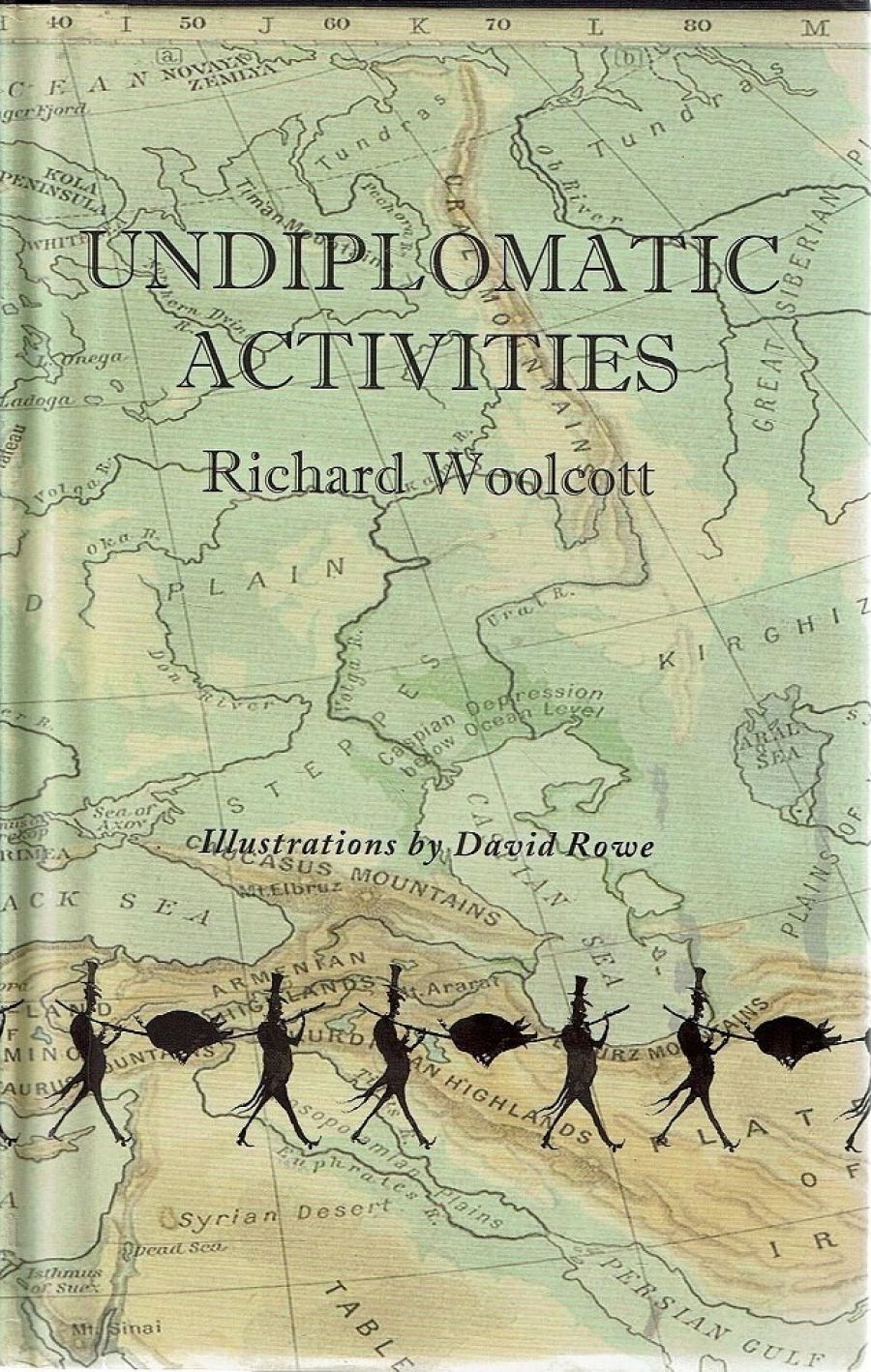
- Free Article: No
- Contents Category: International Studies
- Review Article: Yes
- Article Title: Undiplomatic humour?
- Online Only: No
- Custom Highlight Text:
Are ambassadors anachronistic these days, or do top-secret cables and personal finesse still outflank headlines and blogs? In his new book, Richard Woolcott, one of Australia’s most experienced former diplomats, quotes a French colleague who believes that ‘we have become a combination of travel agent, messenger boy, and inn keeper’. Yet Woolcott’s autobiography, The Hot Seat (2003), exemplifies historian Charles Webster’s definition of diplomacy: ‘… obtaining the maximum national interest with a minimum of friction and resentment’ – a rather more significant role. Perhaps this is because Ambassador Woolcott’s career spanned most of the second half of the twentieth century (he retired in 1992), when individuals found it easier to make an impact on what he calls ‘probably the world’s second oldest profession’.
- Book 1 Title: Undiplomatic Activities
- Book 1 Biblio: Scribe, $35 hb, 202 pp
- Book 1 Readings Link: booktopia.kh4ffx.net/P0gRMN
Professional diplomats have always used personal relationships to cement political achievements, leavening the responsibilities of jaw-jaw or war-war with individual hobbies, talents and frivolities. ‘What is the difference between a camel and a diplomat?’ the Egyptian ambassador to the United Nations asked Woolcott. ‘A camel can work for two weeks without drinking. Some diplomats can drink for two weeks without working.’
Another former Australian ambassador, Richard Broinowski, described in a 2006 talk the importance of his violin-playing to his diplomacy. In several countries, including Korea and Mexico, he formed a ‘Kangaroo Quartet’ with local musicians, using it as ‘a device to modify the mono-cultural sporting image so many Australians enjoy projecting abroad’.
In Woolcott’s case it was games, including tennis, squash and chess, played in Europe, Africa, South-East Asia and North America, and not only with fellow diplomats. In one memorable squash game, Woolcott (accidentally) inflicted a deep cut across the bridge of then Prime Minister Billy McMahon’s nose just before the prime minister was to go on BBC television.
Woolcott’s sense of humour was also useful, not only for self-preservation, but as a diplomatic tactic. In The Hot Seat, the funny stories are dispersed throughout 300-odd pages and describe his involvement with people and events of importance to Australia. The trouble with the much slighter Undiplomatic Activities is that it comprises almost nothing but jokes and funny stories, almost all of them repeated from the longer book. When such stories are juxtaposed without the serious framework they create an unfortunate foreshortening effect, overemphasising what otherwise might be just another anecdote.
Reading Undiplomatic Activities, it is hard not to notice two things. One is the rather juvenile, smutty and scatological nature of many of the jokes, especially fart jokes, often involving mistranslations. The other is the disproportionate number of ‘funny’ stories about how badly they do things in Africa: ‘optimism is always premature in Africa.’ It is not that individually the jokes aren’t sometimes funny, very funny; it’s that they create a cumulative sense of discomfort. This is unfortunate, especially because The Hot Seat showed that the Woolcotts enjoyed much about their time in South and West Africa, finding the scenery stunning and the people interesting, friendly and intelligent. But when nothing but misadventure is portrayed, in a wearily humorous and long-suffering way, another impression altogether emerges, one that the author could not have intended.
This impression is heightened by the book’s cover, which depicts a line of top-hatted gentlemen carrying poles on which pigs are stuck. The drawing actually refers to a satirical recipe for a traditional Philippine feast of barbecued pig, but the tone remains. In addition, the book is badly edited, with various conspicuous typos. All this makes it hard not to imagine that Undiplomatic Activities is a quickie: designed perhaps for the Christmas trade?
The book’s defects not only do a disservice to a career whose qualities and contribution to Australian international affairs have been widely acknowledged, but almost conceal the final chapter’s heartfelt critique of current Australian policies. ‘As this century unfolds,’ Woolcott concludes, ‘I find I am living in a changed Australia. It is not the country I represented for four decades, usually with pride and always with dedication.’ He describes as ‘tragic’ the ‘enormity of the diplomatic errors of judgement in relation to Iraq’. Our civil liberties have been eroded, and we seem to be drifting toward a ‘fearful and mean society’.
The former head of DFAT makes a remarkably direct attack on Prime Minister John Howard, accusing him of ‘remaining in the time-warp of the Anglosphere’ and refusing in 1999 ‘to take the next great historic step’ by severing ‘our anachronistic subservience to the British Crown’; of following the American lead and reinforcing perceptions that Australia ‘welcomes the role of a “deputy sheriff” in our region’; of allowing Australia ‘to be seen as a bully’ in south-west Pacific countries; of anaesthetising the public and silencing its foreign policy critics; of manipulating the truth; of creating a ‘morally deficient’ political culture.
It is a curious ending to such a lightweight book, but as Woolcott remarks, ‘undiplomatic activities are not all amusing or lightly put aside’.


Comments powered by CComment